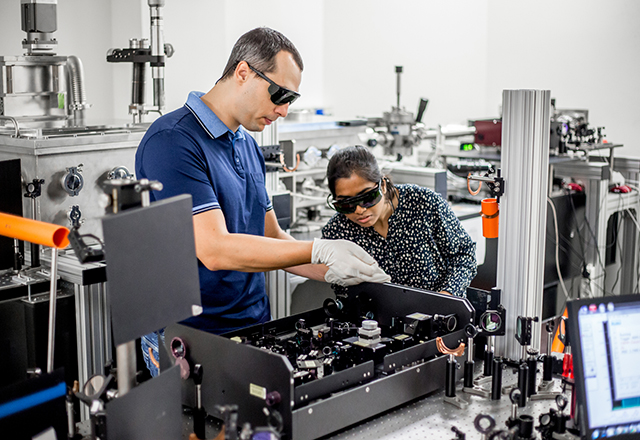“Don’t you ever get bored?” It wasn’t a question I’d expected from my high school summer student on her second day in the lab. And I was equally surprised when I found myself saying “all the time.” My recent experience mentoring a student has been rich and rewarding, but not for the reasons I anticipated. At a point in my Ph.D. when I am beginning to consider what life might be like after grad school, my mentorship experiences made me evaluate what I still like about research and why I pursued it in the first place.
My student is a rising senior, writing up college applications and trying to choose her prospective major. Similarly, I find myself at the beginning of a transition period. The past few months I have attended multiple seminars from the professional development and career office (PDCO) about jobs, both at the bench and away from it. A common bit of advice from these seminars is to take stock of the tasks I’ve enjoyed during grad school and try to find a career that features those skills. The fresh-eyed perspective of a high school student has allowed me to clearly see the aspects of research I like and dislike. Day-to-day labwork is often repetitive. There can be a lot of waiting around for things. Benchwork can be monotonous. That is to say, it is not often my favorite thing to be doing. So when my student asked “don’t you ever get bored” as we began another round of washes on a western blot, I answered quickly and honestly.
But later that same day, as we imaged the blot, I squinted at the unlabeled barcode of black lines as they developed. “Huh, that’s interesting,” I said. My high school student leaned closer to the screen and asked, “What’s interesting?” I explained to her what I was seeing, why I thought it could be cool and how it fits in with our hypothesis. She just kept staring at the screen, taking it all in with a slight smile. I could tell she was excited, and so was I. She had her first taste of positive data, and the feeling of lightness you get when your ideas turn out to be right. I know that those moments are rare in science, much rarer than I realized when I started grad school, but they’re never any less awesome when they happen. Sharing one of my student’s first moments of scientific discovery was a powerful reminder of what I still love about science: the thrill of discovery and piecing together fragments of data into a hypothesis. I don’t know if my high school student will want to spend another summer in a lab after this one. And I’m still not sure what my life will look like after grad school, but this mentorship experience has given us both a new perspective as we prepare to move forward in our careers.
Related content
- The Selfless Act of Mentorship
- Magical Mentorship
- Learning Through Apprenticeship: A Continued Pillar of Medical Education
Want to read more from the Johns Hopkins School of Medicine? Subscribe to the Biomedical Odyssey blog and receive new posts directly in your inbox.
